World Vision Mozambique hands over new community infrastructure in Maganja da Costa, with a focus ...
Mozambique: Election of new chair for Africa CDC panel ‘recognises’ country’s work
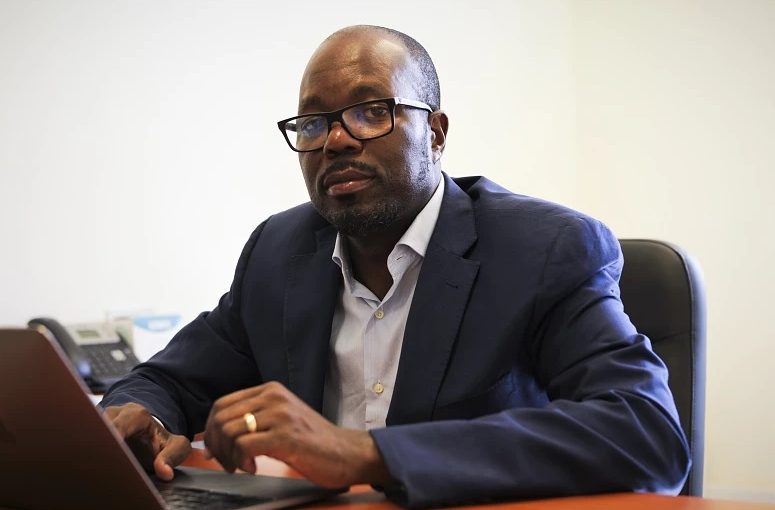
File photo: Lusa
The director-general of Mozambique’s National Health Institute (INS), Eduardo Samo Gudo, said on Monday that his election as chair of the Advisory and Technical Council of Africa CDC represents recognition for the country and the efforts of its public health system.
“I take this not as individual recognition, but as collective recognition,” said the specialist in an interview with Lusa at INS headquarters on the outskirts of Maputo. “First, recognition for the country, because I am part of a public health system and the knowledge, skills and experiences that I have acquired in my twenty-year career in public health was in this public health context: it is in this context that I gained all the luggage.”
As chair of the advisory council of the Africa Centre for Disease Control (Africa CDC), Samo Gudo will have Alex-Okoh, from Nigeria, as his vice-chair, following his own election having been made unanimously earlier this month.
“It has to be the first collective recognition, at the national level, for Mozambique, and the second is a collective recognition at the institutional level,” he said. “Today I am the director-general of the INS of Mozambique and I work at the INS; I have held several positions over twenty years. So it is also a recognition for the institution, because it was this institution that raised me.”
Samo Gudo holds a degree in general medicine from Mozambique’s Eduardo Mondlane University (graduating in 2003), a PhD in Immunopathogenesis of Human Retrovirus Infection from Instituto Oswaldo Cruz, in Brazil (in 2012), and a junior postdoctoral fellowship in emerging viral diseases from the European Foundation Initiative into African Neglected Tropical Diseases, in Germany (in 2015), as well as a senior postdoctoral fellowship in emerging viral diseases at the latter institution.
“Most of my experience in public health was gained at this institution,” he said of the INS. “So, it is a recognition of the important role that INS plays not only in the context of the public health system in the country, but above all in the training of public health specialists that, with this appointment of mine, brings a prestige that transcends the national level, but also at the international level.”
He has led the INS since March 2023 (and was deputy director-general from 2018 to 2022) and has research experience in the areas of microbiology, endemic diseases, neglected and emerging diseases, epidemiological surveillance, surveys and immunology, as well as having seen several articles published in international journals.
“Chairing the Africa CDC advisory council is a task of great responsibility,” he stressed. “We are talking about the main scientific body at the level of the African continent, which has an important mandate to advise the different organs of other governing bodies of the Member States. In general, the continent in terms of public health.”
Drawing on the experience built up by Africa CDC, which was created in 2017 by the African Union, just over two years later, with the Covid-19 pandemic, in the mobilisation of tests, laboratory equipment, vaccines and the production of recommendations, the new chair of the institution’s advisory council has no doubts: “It passed the test… It passed the test that we could want to confirm that it was worth creating an agency and that it would also have capacities.
“Many recommendations that the country [Mozambique] used, that our technical-scientific committee used, to be able to advise the government, were based on the recommendations issued by Africa CDC,” he went on. “So, this shows the relevance that this advisory council has for public health at the continent level. We consumed many recommendations from the African CDC, which allowed us to manage, I would say well, the Covid-19 pandemic in our country.”
He expressed this view at a time when the African CDC is restructuring its fields of opertaion, gaining greater autonomy and preponderance in a period that he said is “particularly challenging for this African public health agency.”
Created by the African Union “to promote preparedness, response readiness and recovery systems for public health emergencies on the continent,” CDC Africa “has already shown its credits” and was in March elevated last year to an autonomous agency, by decision of African heads of state and government, “to give [it] more autonomy for actions in the area of public health,” Samo Gudo noted.
“It now has the competence and mandate to declare African public health emergencies,” he explained. “We know the global context: these are public health emergencies of international concern, and the Africa CDC now has status for the African continent, in consultation with the World Health Organisation. Because it is important that these two bodies work – and they already work – closely together.”
The Advisory and Technical Council, an expert body, is tasked with advising the director-general of Africa CDC, the ministers of health of African countries and member states on public health matters: “In its diversity, complexity, multidisciplinarity in the area of health, including advising the director-general of the agency on whether or not to declare these types of emergencies on the continent. So it’s a particularly important moment for the agency.”
Now “with no time to lose” – in his words – immediately after being elected to office, the new chair of the Africa CDC advisory council has already approved the institution’s new Strategic Plan for 2023 to 2027 and the new rules of procedure: “At the first meeting there was already a hot agenda for discussion and it was a good discussion. From now on what follows is just work.”



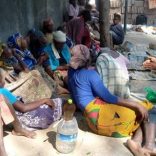

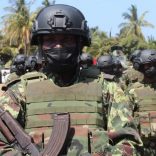
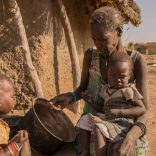
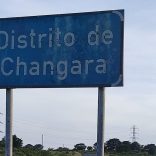





Leave a Reply
Be the First to Comment!
You must be logged in to post a comment.
You must be logged in to post a comment.